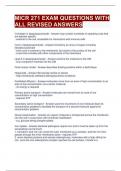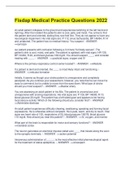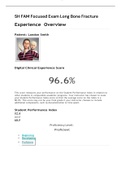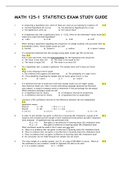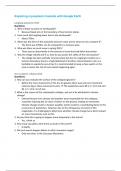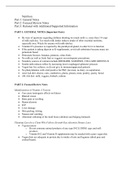Exam (elaborations)
MICR 271 EXAM QUESTIONS WITH ALL REVISED ANSWERS
- Course
- Institution
MICR 271 EXAM QUESTIONS WITH ALL REVISED ANSWERS O-Antigen in lipopolysaccharide - Answer-may contain hundreds of repeating units that are species specific - external to the cell, accessible for interactions with immune cells Core in lipopolysaccharide - Answer-formed by an array of sugars in...
[Show more]
